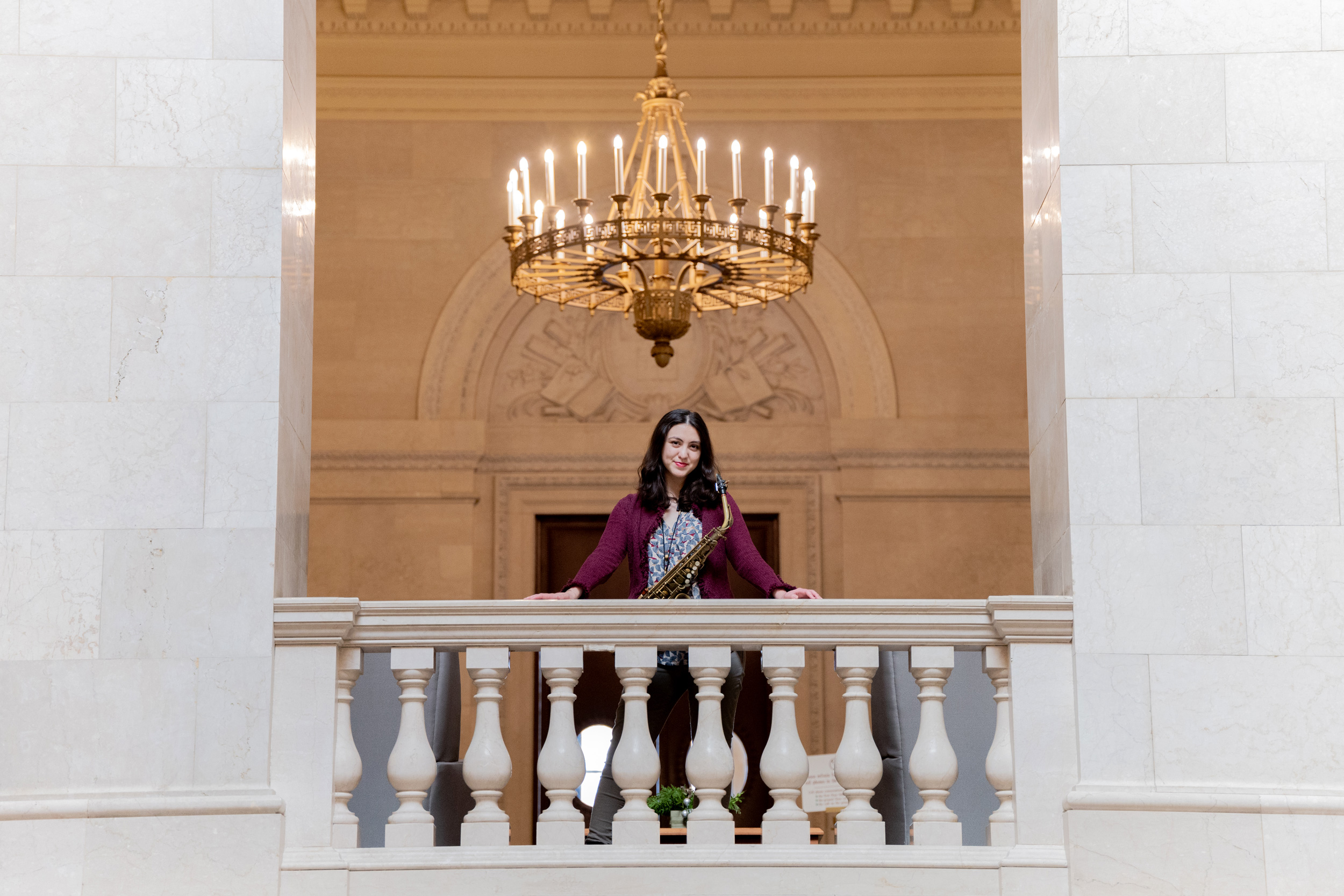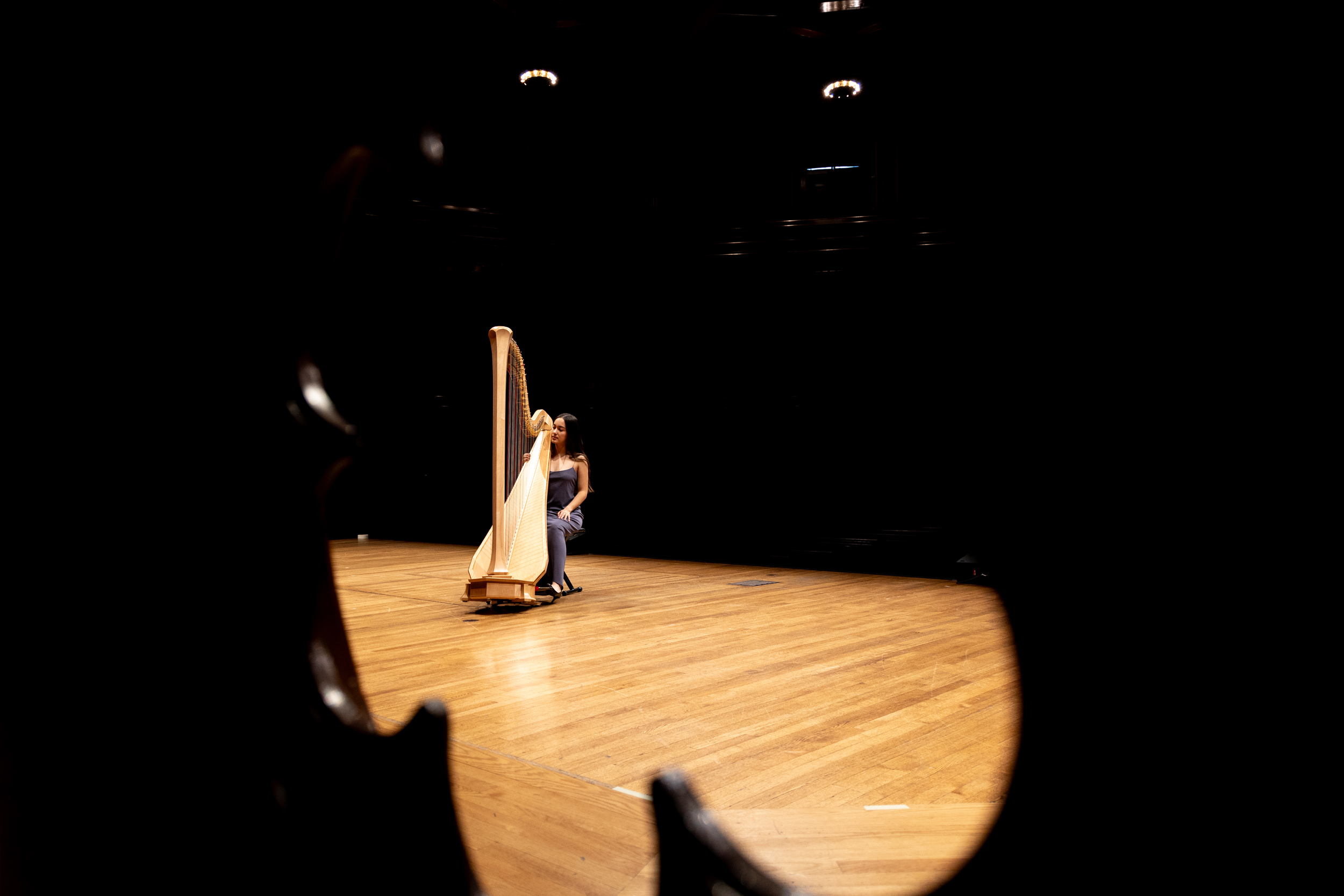
Gabrielle Grant ’24 onstage at Sanders Theatre.
Photographs by Dylan Goodman
Instruments of change
Female musicians fight gender tone-deafness
When I was 3 years old, I started playing the piano. Seven years later, I discovered the drums. At first, I was simply enamored by the power of noise — keeping my family up at night, alerting the neighbors, and deafening my dog. However, as my musical journey continued, I discovered and learned to appreciate the intricacies of this incredible percussion instrument — the intrigue of rhythm and nuance of orchestration, and the pleasure of connecting with other musicians.
In high school, in an effort to play as often as possible, I attended weekend music education programs, in effect going to school seven days a week. I was constantly drumming, and I loved every minute of it. There was something powerful about leading a band, connecting with others without using words, and pursuing my passion with genuine dedication.
I could not help but also notice another transition: from being recognized not just as a musician, but as a female one. With each new male-dominated environment I encountered, I found myself increasingly defined by my gender rather than my musical talents.
Challenges came both big and small: bandmates doubted my leadership abilities; conductors provided feedback such as “You’re playing like a girl;” I witnessed all-male ensembles perform concerts that celebrated women empowerment; I stood apart from the rest of the band because I was prohibited, by the conductor, from wearing the same uniform as everyone else because it was not “gender-appropriate.” While my passion for music remains steadfast, the fact remains: I constantly face challenges because of my gender.
I recently learned I was not alone. In two studies, conducted in part by Berklee College of Music and Women in Music, 77 percent of the female musicians surveyed “overwhelmingly agreed that they had been treated differently within the music industry,” with 56 percent believing their gender had affected their employment.
At Harvard, there are many incredible female musicians — artists who inspire me and future generations every single day. These talented individuals continue to make strides both inside and outside of campus. Several shared with me how being female has shaped their musical journeys. These women, whose pictures were taken around campus, are only a few of the many incredible women who continue to pave paths for future generations — one note at a time.
Gabrielle Anne Grant ’24: Harpist
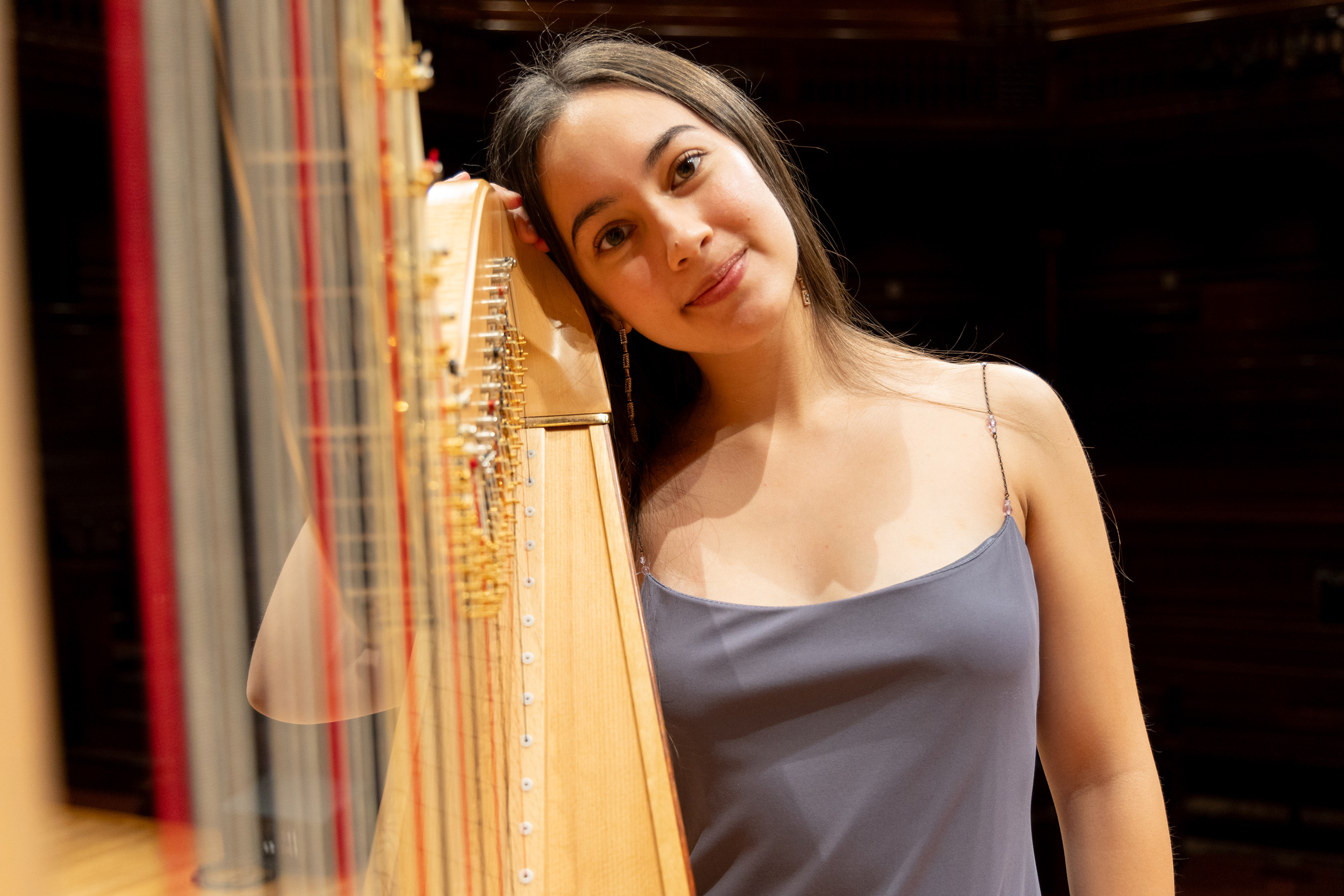
Since the age of 5, Grant has been an avid harpist, a pursuit that has taught her a plethora of lessons, both through music and in other aspects of life. Beyond mastering the arpeggios of Hasselmans’ “La Source” and the dynamic changes in Rota’s “Sarabanda e Toccata,” Grant has learned how to manage her time, rebound from disappointment, and develop a strong work ethic.
“As a woman who plays the harp, I feel like I can bring a feminine sensitivity and expressiveness to my playing that make it especially beautiful.”
As the principal harpist of Harvard-Radcliffe Orchestra, Grant is also one of its leaders. The orchestra is among Grant’s favorite groups to perform with, saying she enjoys working with her small section of harpists, playing her instrument, and simply listening to the musicians around her during her musical rests.
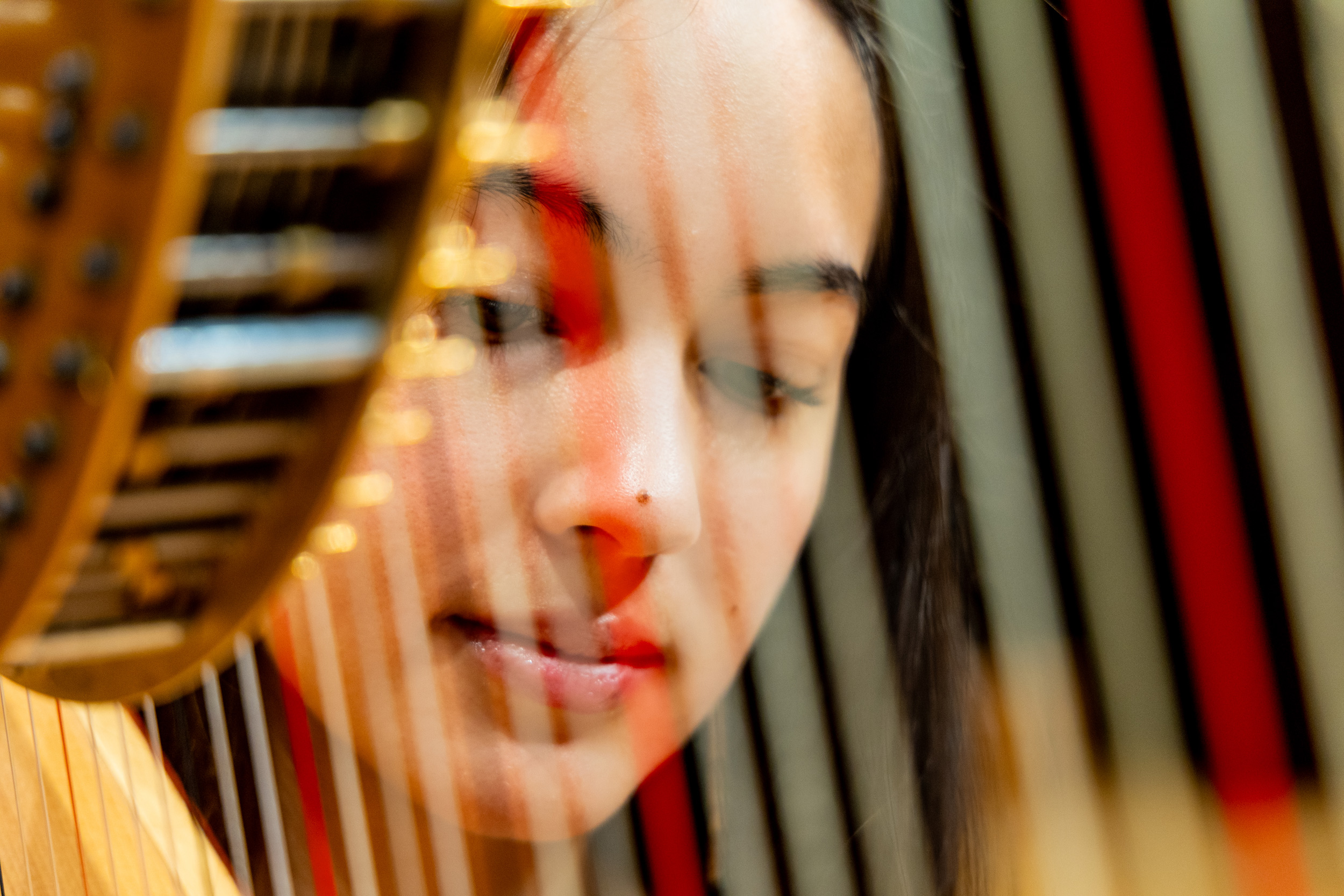
Grant is a senior in Pforzheimer House, pursuing a double concentration in economics and East Asian studies with a secondary in music. Music, she said, is “a way for me to relieve my stress after a long day of schoolwork and running around to various extracurricular commitments.”
Charrise Barron, Ph.D. ’17: Assistant Professor of Music
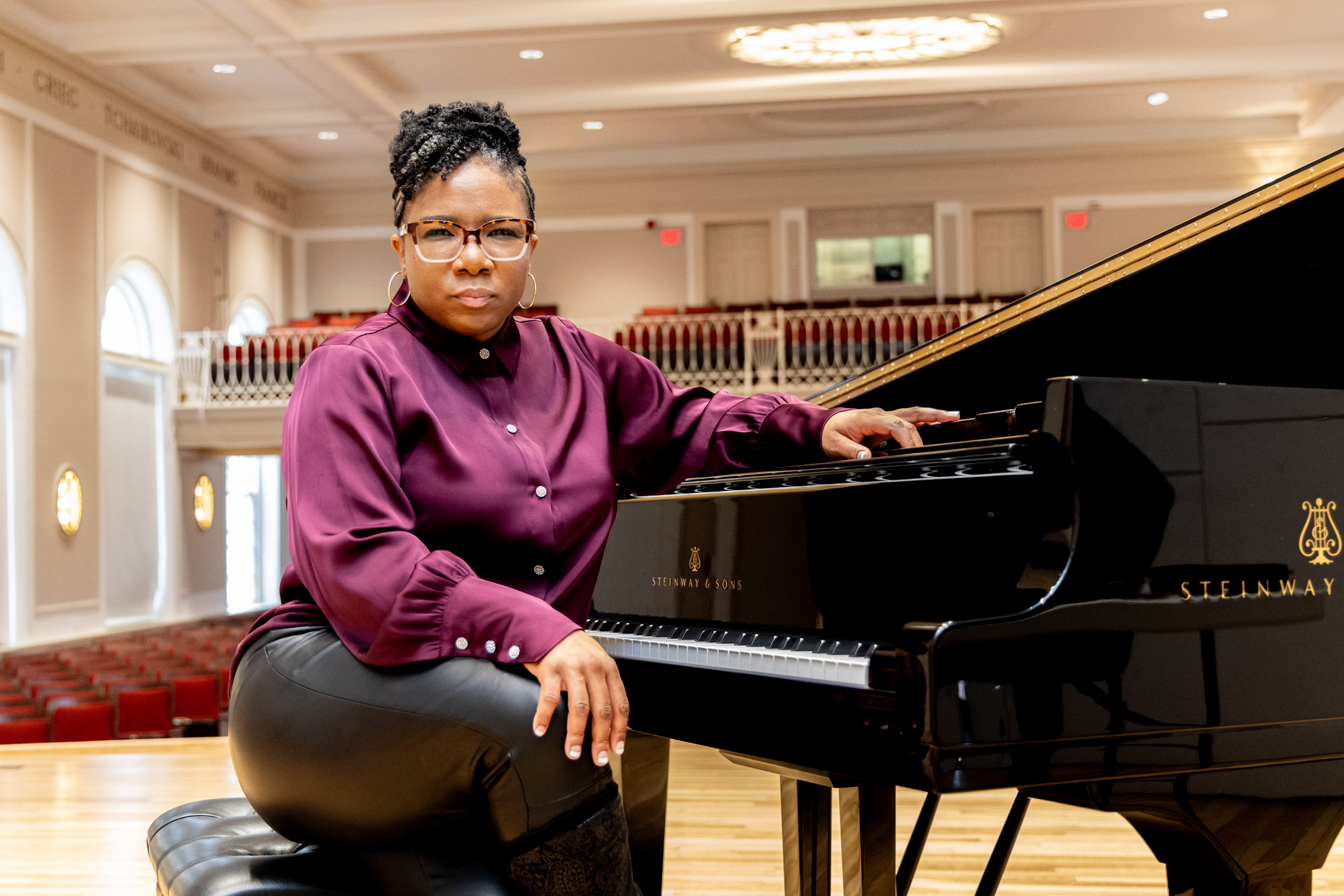
When she is not singing or playing the keys, Barron is researching and teaching courses surrounding ethnomusicology — the study of music within societal and cultural spheres. Specifically, she explores a range of Black popular music, from gospel to hip-hop to protest music. Currently, Barron is teaching an undergraduate course called “Gospel Music from the Church to the Streets” and a graduate course titled “Gods of Hip-Hop and Black Pop.”
“As a Black woman, I aim for my scholarship to bring more attention to the groundbreaking and genre-defining work of women musicians and music industry leaders, especially in genres and offices in which people expect men to predominate.”
Barron fell in love with music as a child; she describes a childhood that was “deliciously noisy.” Her greatest influences come from the sounds of Black church and her parents.
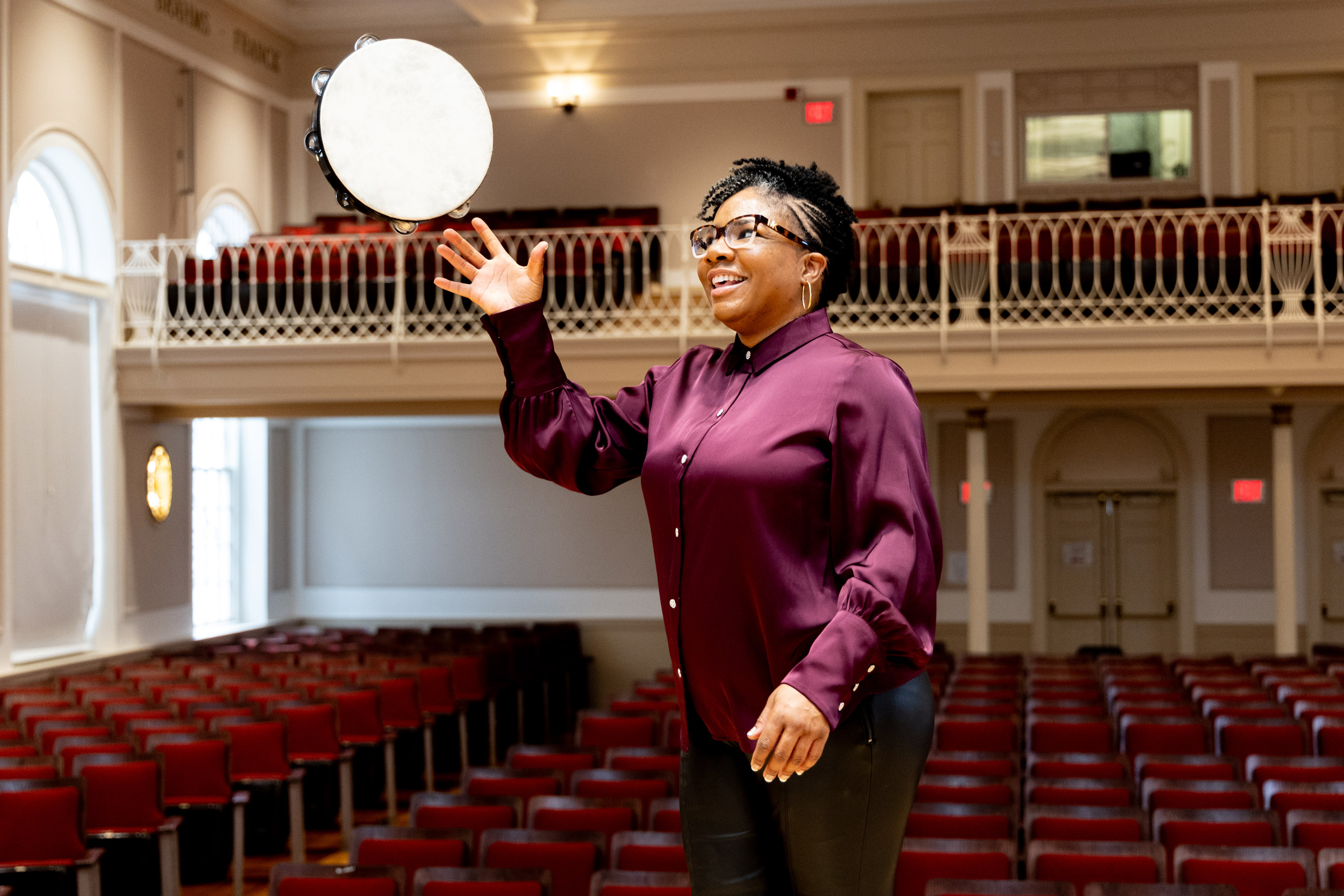
Kaiya Brooks ’27: Pianist
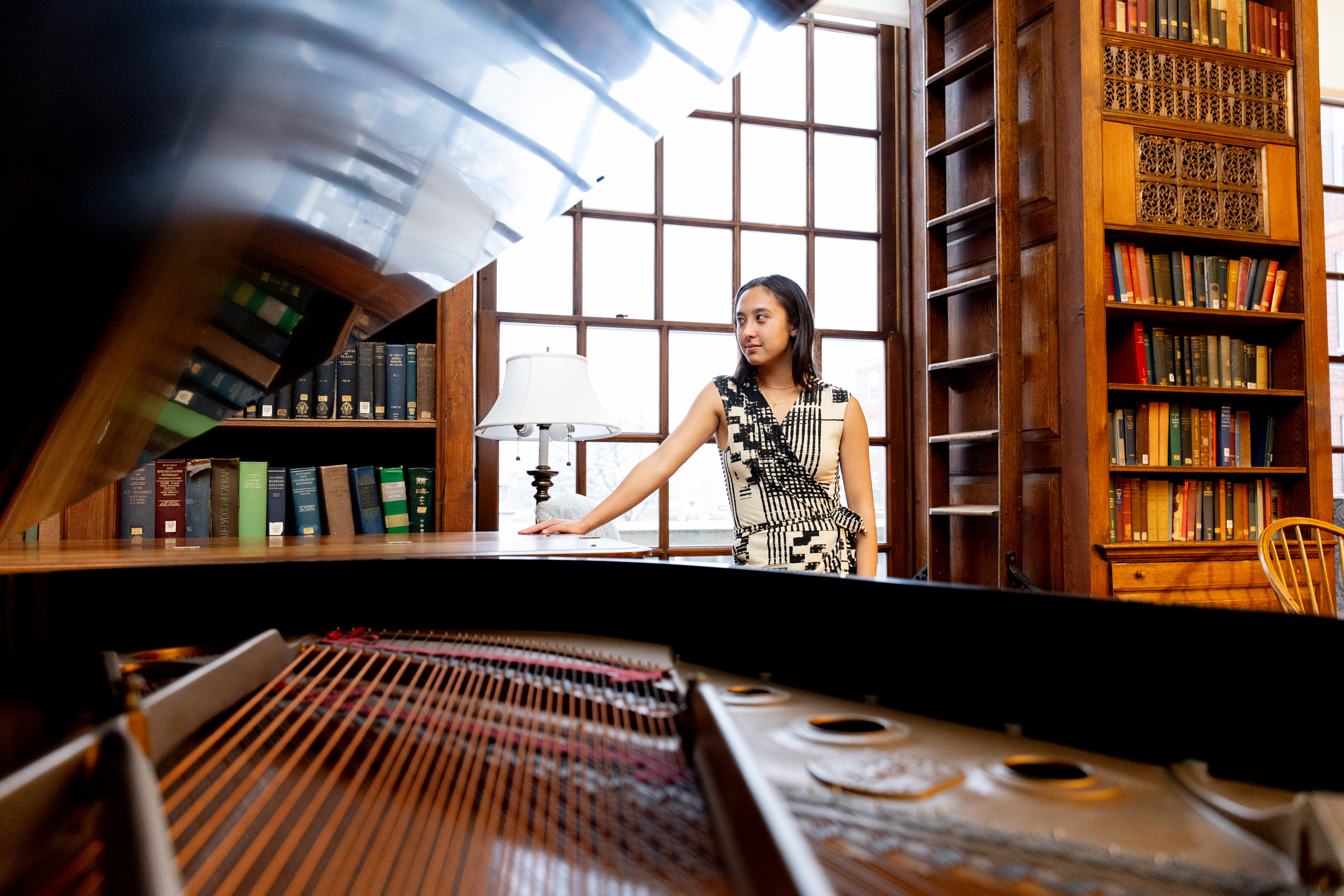
Brooks is already diving into the Harvard music scene. As a pianist in the Harvard Jazz Orchestra and Combo Initiative, the first-year is expanding her musical vocabulary.
Outside of the classroom, she is exploring the intersection of mental health and music — a topic she became interested in after performing at elder care facilities. “I really liked how music not only gave me an outlet to express myself but also it was a way for me to help others.”
“I’m more scared to play ‘wrong notes’ and to experiment when I’m the only female musician … I feel like I have something to prove. I think that there are subtle ways where being a woman impacts my playing and my confidence.”
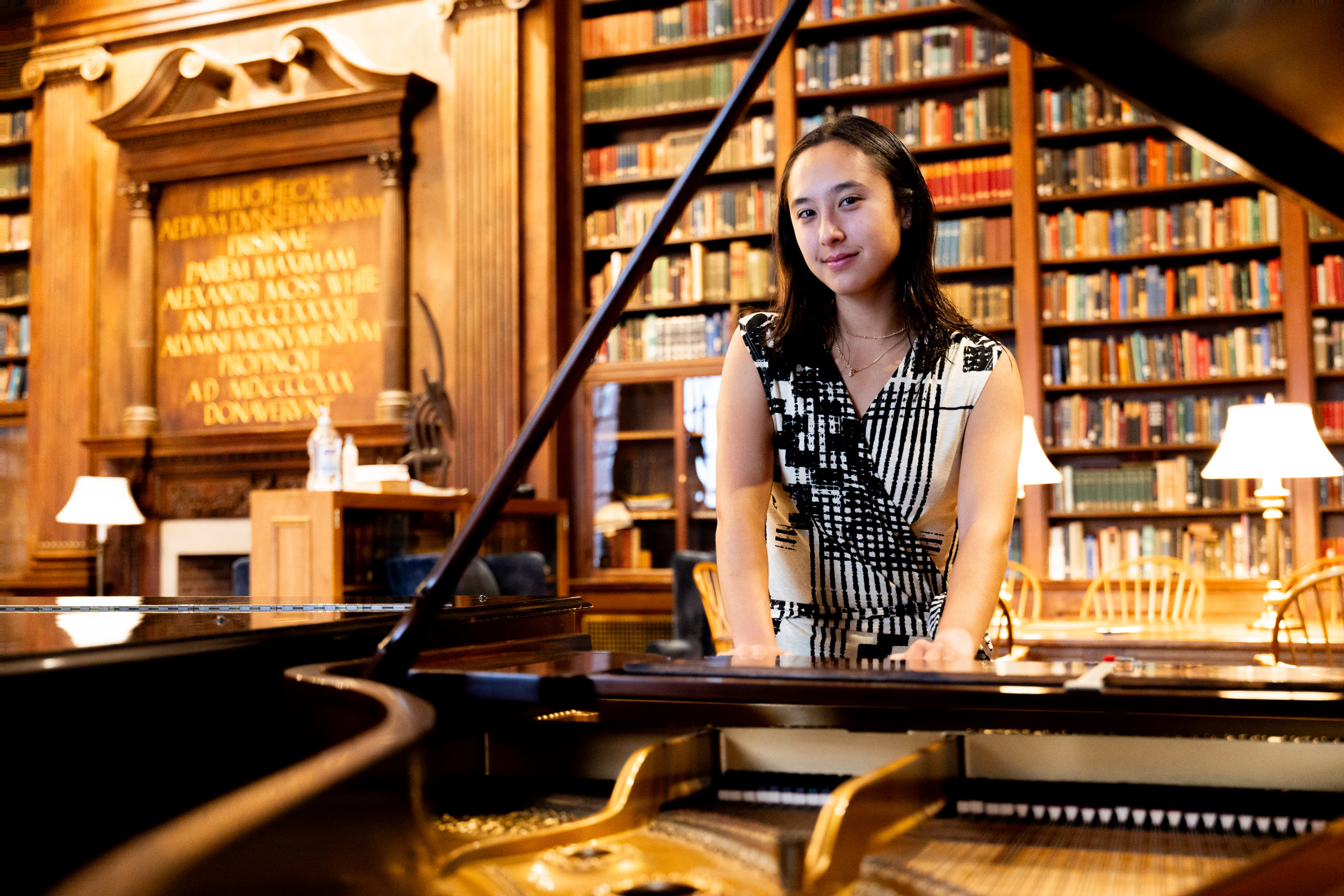
Brooks is a Division 1 athlete on the Harvard women’s track and field team. Part of the reason she enjoys music so much is because it allows her to “pause from the busy pace of school, sports, and the rest of life.”
Devon Gates ’23: Bass and Vocalist
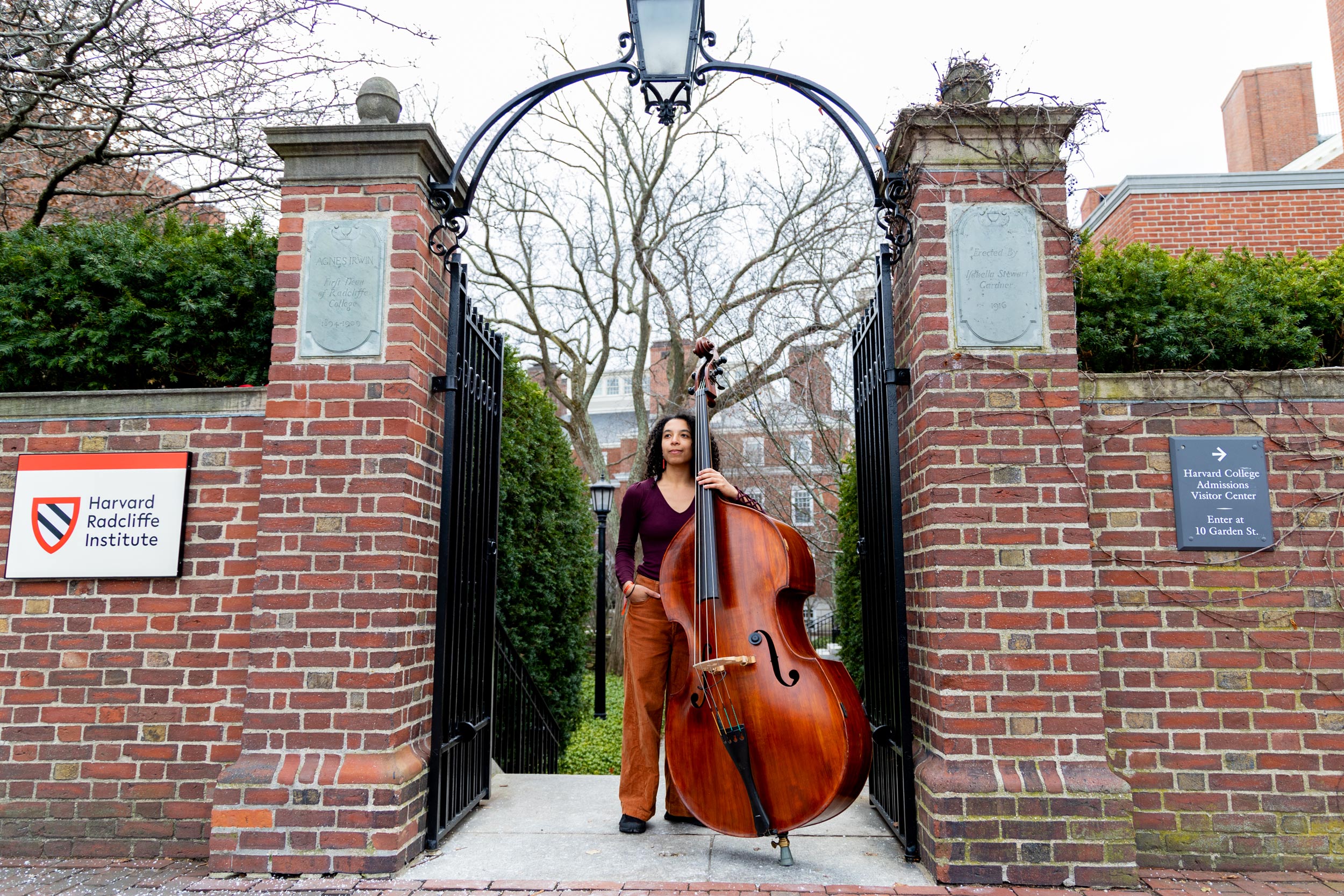
Skipped That Step
transcript
Transcript:
When I wake up humming
feel the sun on my toes
had a daydream or two
before I check my phone
when I taste my morning tea
and know when to stop
so I don’t get too jittery
I think I’d find
that I’d have so much more time
if I didn’t spend it wondering
am I good enough
and in the afternoon
would I take longer walks
along the river and watch the shiny shiver of the waves
when I’m just remembering just how much
abundance I can see
when I’m not spending it all on this worry job of mine
I’d think I’d find
I’d have so much peace of mind
if I didn’t spend it wondering
am I good enough
Cause what’s the point if I spend my life
waking up to a series of sighs
when I could smile just like the birds do out my window
I’m sure there’s something there we’re missing
that they all know
what is deep and what is shallow
I think I find
I saved my life sometimes
When I take moments to consider
as a lay my head to rest each night
what could I do tomorrow
if I didn’t have to wonder
am I good enough
what if I just skip that step
and leapt straight into life today.
To Gates, who graduated in December, “Music is a way of approaching life, it is a way of experiencing all of life’s beauty, pain, and everything in between, and really feeling each ebb and flow, embracing it as a messy, complicated, human thing.”
During her time in the dual-degree program at Harvard and Berklee College of Music, Gates undertook numerous music courses, sang with the Harvard Opportunes, composed music for various ensembles, and submitted a thesis on “jazz, gender, and non-male community building in the Boston jazz scene.”
“Besides the obvious micro- (and macro-) aggressions we experience on and off the bandstand, there is also an internal battle you’re constantly experiencing, of imposter’s syndrome, of your inner jazz critic constantly doubting whether you are enough, of the exhaustion that comes from fighting that battle day in and day out.”
Through it all, Gates has found community within the music industry — spaces that remind her that “We aren’t alone.”
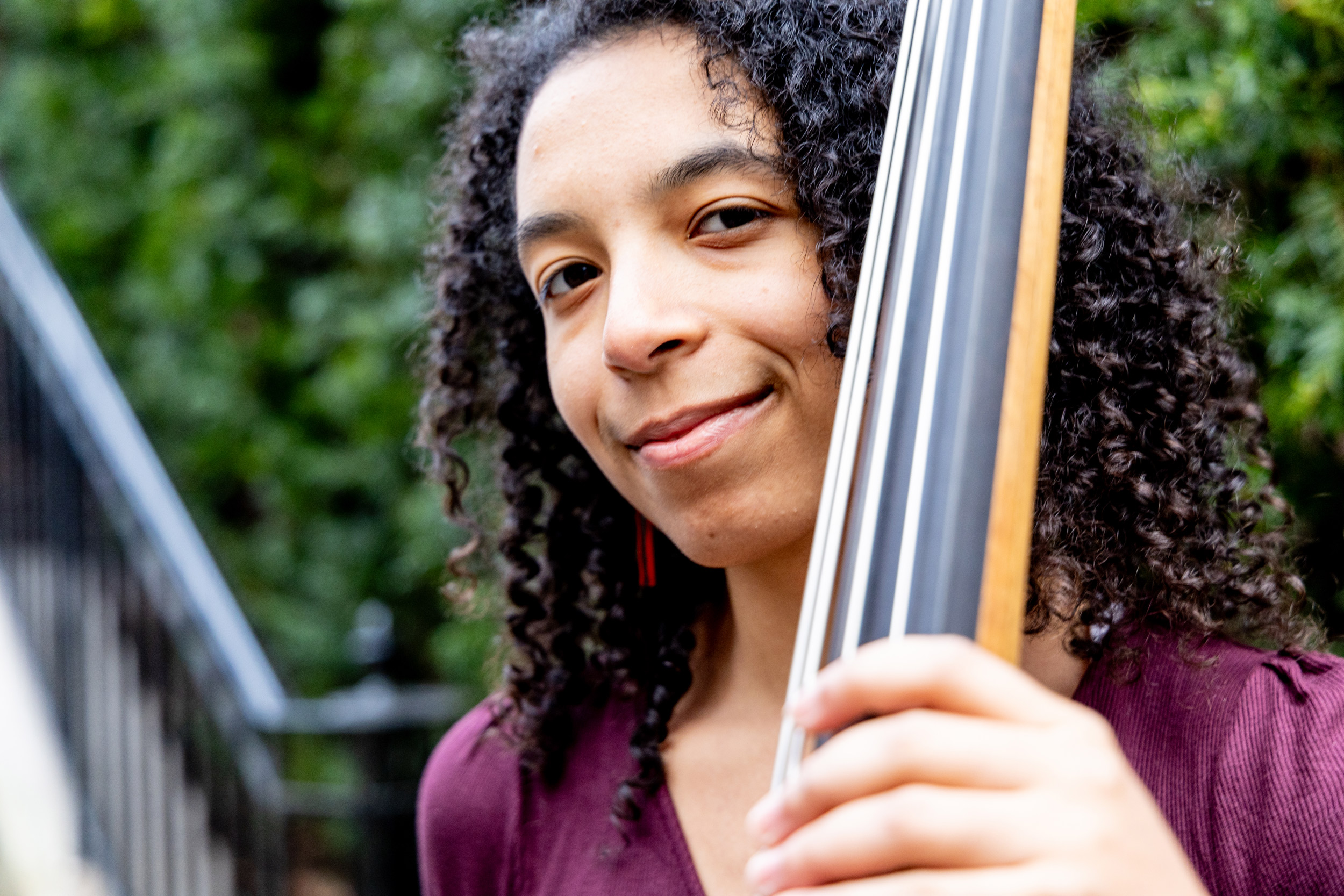
Vocalist Isa Peña ’24
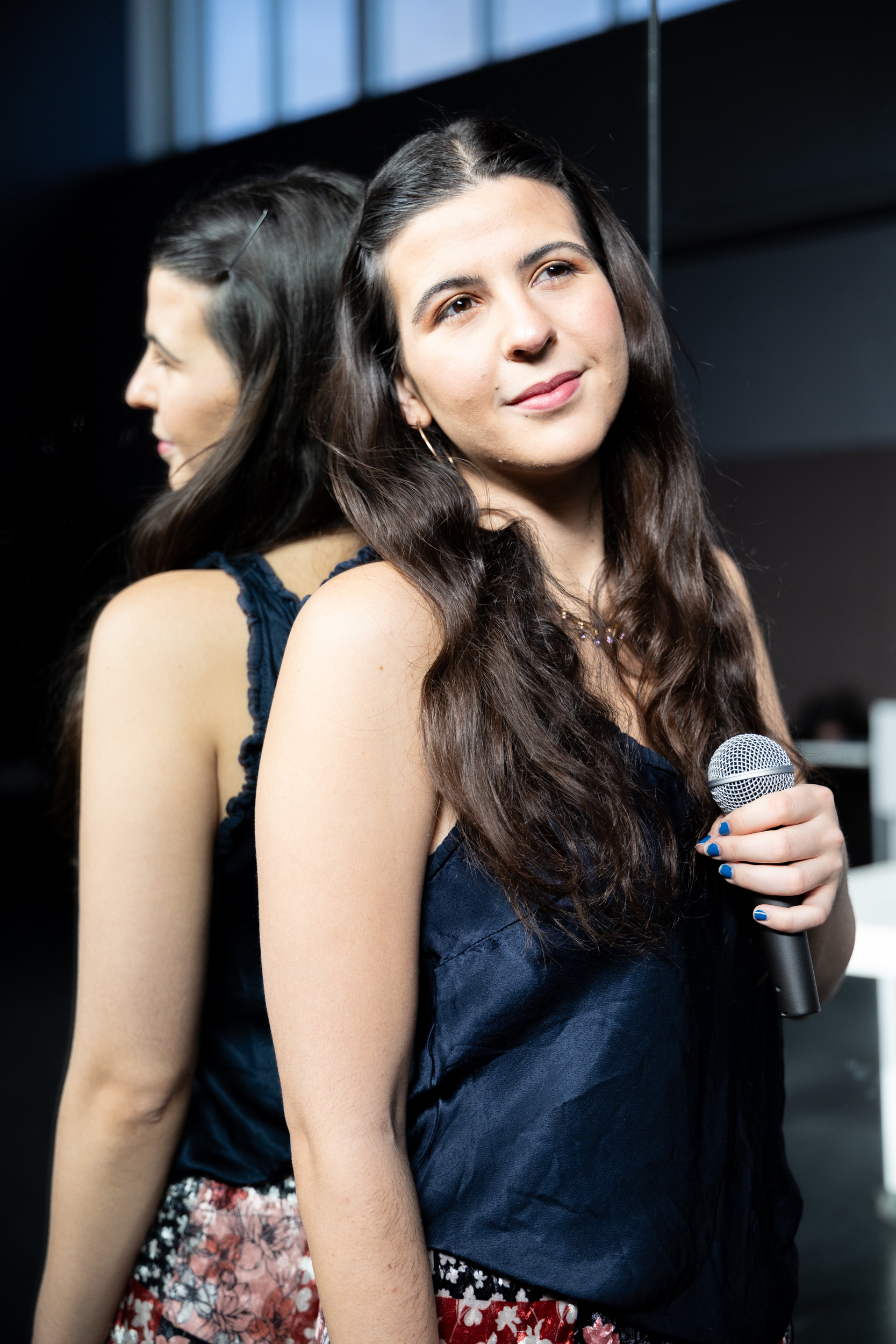
Where Have You Been?
transcript
Transcript:
I’ve been everywhere, man
Looking for someone
Someone who can please me
Love me all night long
I’ve been everywhere, man
Looking for you, babe
Looking for you, babe
Searching for you, babe
Where have you been?
‘Cause I never see you out
Are you hiding from me, yeah?
Somewhere in the crowd
Where have you been
All my life? All my life?
Where have you been all my life?
Where have you been all my life?
Where have you been all my life?
Where have you been all my life?
I’ve been everywhere, man
Looking for someone
Someone who can please me
Love me all night long
I’ve been everywhere, man
Looking for you, babe
Looking for you, babe
Searching for you, baby
Where have you been?
‘Cause I never see you out
Are you hiding from me, yeah?
Somewhere in the crowd
Where have you been
All my life? All my life?
All my life? All my life?
You can have me all you want
Any way, any day
Just show me where you are tonight
I’ve been everywhere, man
Looking for someone
Someone who can please me
Love me all night long
I’ve been everywhere, man
Looking for you, babe
Looking for you, babe
Searching for you, babe
A senior at Harvard and a member of the Berklee College of Music dual-degree program, Peña’s work and talent has brought her to incredible places and stages —from the Farkas Hall stage to the Top 40 on “American Idol” to Fenway Park.
Peña started singing at the age of 7 when her go-to-song was “Part of Your World” from “The Little Mermaid.” Now, she stars in The Hasty Pudding Theatricals’ performances as the first Latina woman to do so.
“In an industry historically dominated by men, I am honored to bring my lived experience as a Latina woman to the forefront, challenging preconceived notions of what we can and cannot do […] I am empowered by my experiences, and feel so much joy performing.”
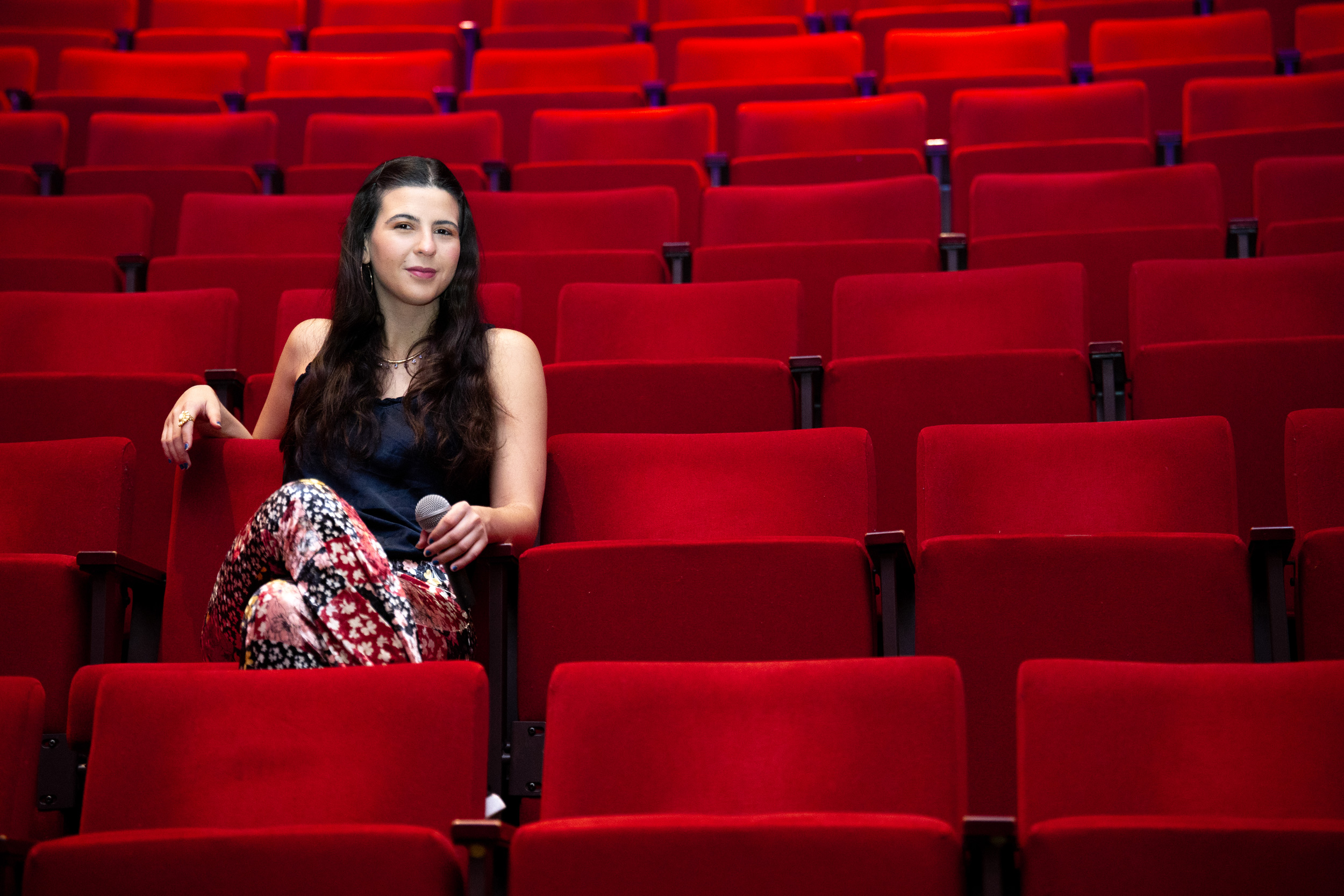
Veronica Leahy ’23: Saxophonist and Multi-instrumentalist
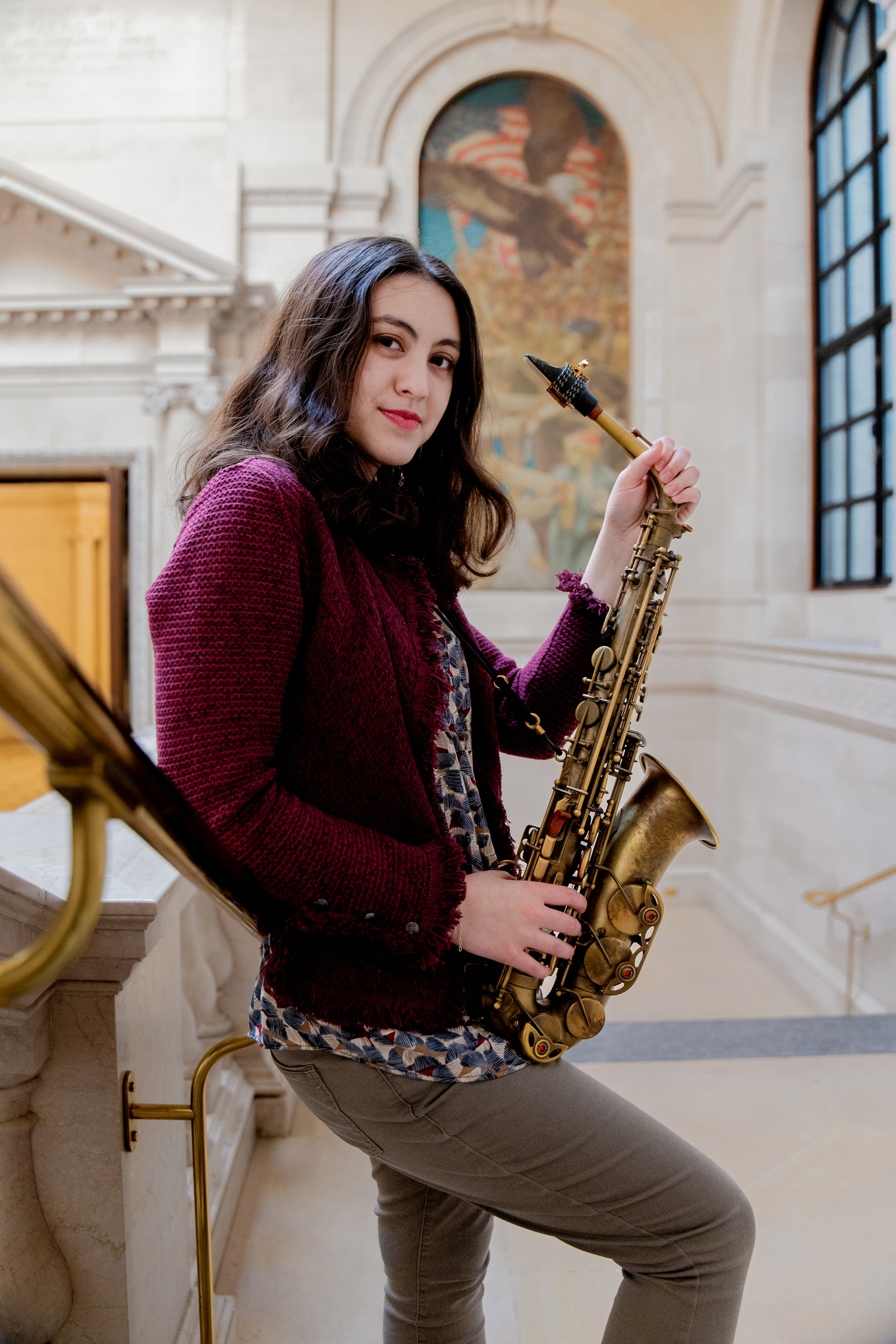
The recent graduate is a professional composer and musician. For Leahy, music is more than an occupation, it’s her “lifeline,” allowing her to “shapeshift, to not settle into any one box or identity.”
“It is hard to articulate just how profoundly this industry, and at times this art form, is entangled in the notion that women are somehow lesser — less skilled, less intelligent, less cool — than men.”
Aside from concentrating in music, Leahy founded CompFest (Harvard Student Composers Festival), composed for Hasty Pudding Theatricals, and directed productions around campus.
Listen to “Survivor’s Guilt,” a piece from her senior thesis, “American Tonic,” which explores her experience with chronic illness and the insulin crisis.
